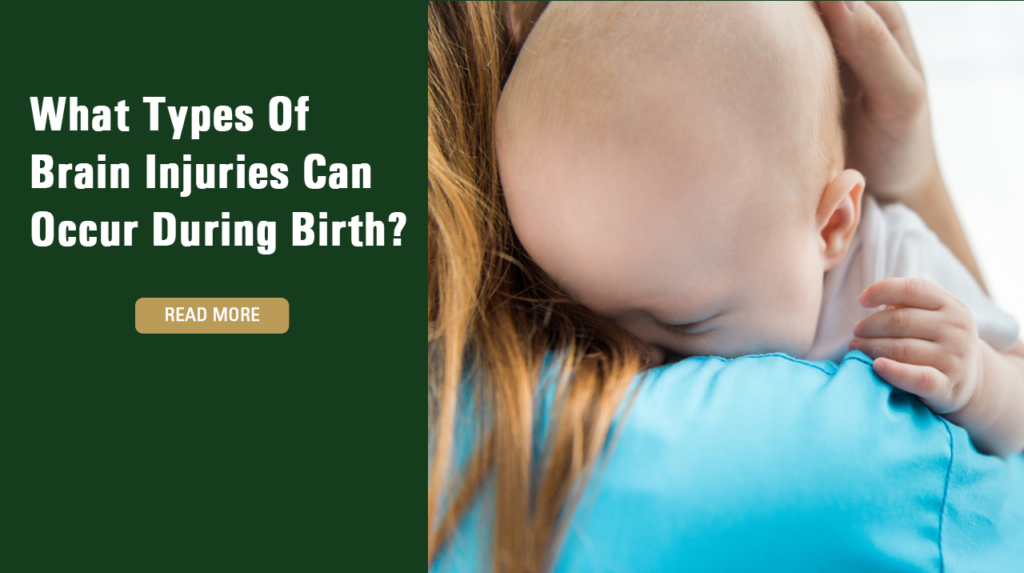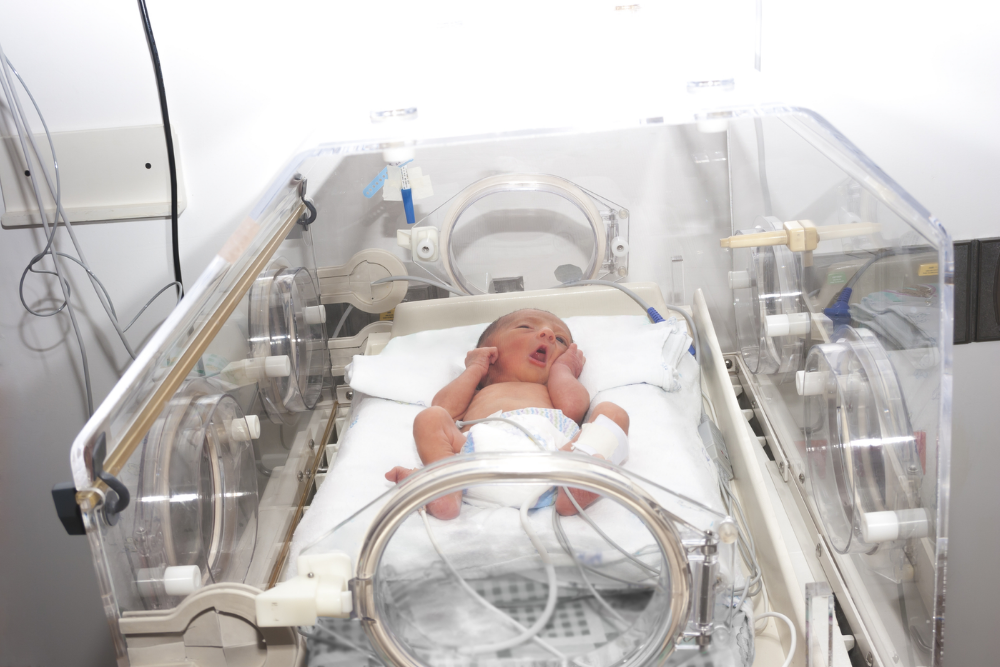What Types Of Brain Injuries Can Occur During Birth?

Having a baby is among the most joyous and exciting events you might experience in your life. While many parents enjoy relatively trouble-free birth processes, some births result in brain injuries to the infants. An infant brain injury can be devastating for both the parents and the baby. Depending on the type of injury and its severity, a brain injury can result in lifelong disabilities and the need for ongoing treatment and care. When an infant’s brain injury during birth is caused by the medical malpractice of the labor and delivery staff members, the parents can seek compensation through a brain injury lawsuit with the help of the experienced malpractice attorneys at Raynes & Lawn.
Brain Injuries That May Occur At Birth
Pregnant mothers might experience a variety of different complications during pregnancy, labor, or delivery. One of the most serious types of complications that can happen during pregnancy or childbirth is an interruption of the flow of oxygen to the infant’s brain. A lack of oxygen for even a short time can result in severe injuries and permanent disabilities. Brain injuries during birth can also be caused by infections in the mother’s bloodstream that enter the infant’s blood and affect the brain or by physical trauma causing a newborn head injury during the infant’s delivery. Below are some of the most common types of brain injuries that can occur during birth.
Hypoxic Ischemic Encephalopathy (HIE)
Hypoxic Ischemic Encephalopathy (HIE) is a type of brain injury that can occur before or during birth or during the postnatal period immediately following an infant’s birth. This is a serious condition in which the blood and oxygen flow to the infant’s brain is cut off for a period, causing the death of affected brain cells. Cellular death can start when the blood and oxygen flow is cut off for even a short amount of time. When the blood and oxygen flow is restored, the infant’s brain might then suffer a reperfusion injury caused by the dying brain cells’ release of toxins.
HIE can be caused by several different complications during birth, including the following:
- Placental abruption
- Uterine rupture
- Placental hemorrhaging
- Maternal hypotension
- Umbilical cord problems
- Shoulder dystocia
- Prolonged late labor
- Birth trauma
HIE can result from medical malpractice when the doctor or other medical providers fail to properly monitor the fetus and the mother or to correctly identify complications and intervene promptly.
Cystic Encephalomalacia/Porencephaly
Cystic encephalomalacia, which is also known as porencephaly, is a condition that can be caused by brain injuries before, during, or after birth. In this condition, cerebrospinal fluid can leak into a damaged area of the brain and form a cyst. Porencephaly can cause intellectual disabilities, coma, seizures, or death.
Some of the causes of porencephaly include the following:
- Congenital infections
- Brain bleeds
- Maternal diabetes
- Physical trauma
- Lack of blood flow
- Maternal drug or medication use
- Pressure from the fluid-filled cyst can cause further damage to the brain tissue and potential tissue death.
Skull Fractures
Skull fractures during birth are normally the result of physical trauma to the baby’s head and can occur when the birth canal is too small to accommodate the newborn’s head size or when a doctor improperly uses labor-assistive devices such as vacuum extractors or forceps during a difficult delivery. An infant’s skull fracture can result in membrane ruptures in the tissues surrounding the brain, damaged brain tissue, bleeding, and other problems.
Neonatal Stroke
Fetal strokes can occur when the blood flow to the infant’s spinal cord or brain is blocked due to a blood clot. Neonatal strokes more commonly occur when the mother or baby has a cardiovascular disorder or the infant has sickle cell anemia or a clotting disorder. Doctors should carefully monitor mothers and infants who are known to suffer from these types of conditions and be prepared to conduct an emergency intervention if necessary to prevent a neonatal stroke from occurring.
Cerebral Palsy
Brain injuries during childbirth can result in cerebral palsy.
This condition can range in severity and can result in the following complications:
- Muscular spasticity
- Feeding problems
- Difficulty swallowing
- Drooling
- Gastrointestinal issues
- Coordination problems
- Intellectual disabilities
Cerebral palsy can be caused by the improper use of forceps or vacuum extractors, genetic factors, blood flow problems to the brain, infections, brain bleeds, and other factors.

Microencephaly
Microencephaly is a condition in which an infant’s head is abnormally small. This can result in intellectual disabilities, difficulties with learning to talk and walk, feeding issues, seizures, loss of hearing and vision, and other serious complications.
While microencephaly might be caused by genetic factors, some other things that might cause this condition include the following:
- Untreated phenylketonuria
- Stroke
- Maternal alcohol or drug abuse during pregnancy
- Certain types of maternal infections during pregnancy
- Toxic exposures
In some cases, microencephaly can be acquired after birth because of an infection, brain injury, or a lack of oxygen.
When To Contact A Birth Trauma Attorney
If you have learned that your infant has a brain injury that you believe might have been caused by a medical provider’s medical negligence, you should speak to a birth trauma lawyer as soon as possible. If you wait too long, your ability to recover compensation for your losses might be time-barred. Childbirth-related brain injuries can potentially leave both you and your baby facing astronomical medical expenses, and your baby might also require lifelong care and ongoing treatment. Talking to a brain injury lawyer as soon as you learn that your baby suffered brain damage can help your attorney fully investigate what happened to determine the injury’s cause and whether the healthcare provider failed to meet the expected standard of care. Contact Raynes & Lawn today to request a free consultation by calling us at 1-800-535-1797.

For the general public: This Blog/Website is made available by the law firm publisher, Raynes & Lawn, for educational purposes. It provides general information and a general understanding of the law but does not provide specific legal advice. By using this site, commenting on posts, or sending inquiries through the site or contact email, you confirm that there is no attorney-client relationship between you and the Blog/Website publisher. The Blog/Website should not be used as a substitute for competent legal advice from a licensed attorney in your jurisdiction.
For attorneys: This Blog/Website is informational in nature and is not a substitute for legal research or a consultation on specific matters pertaining to your clients. Due to the dynamic nature of legal doctrines, what might be accurate one day may be inaccurate the next. As such, the contents of this blog must not be relied upon as a basis for arguments to a court or for your advice to clients without, again, further research or a consultation with our professionals.

